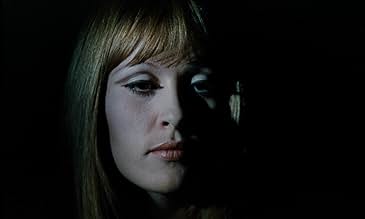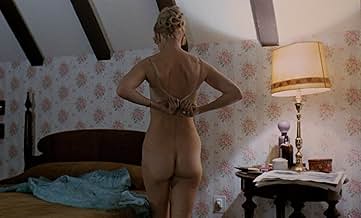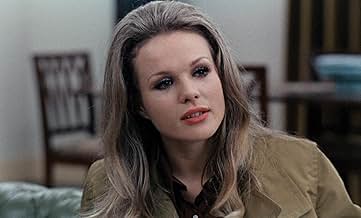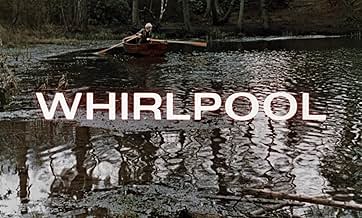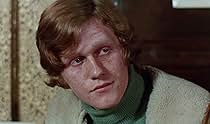"Whirlpool" follows a British model who is lured to an older woman's picturesque country estate where a young male photographer, whom she refers to as her nephew (and she, his aunt), reside. Things seem odd at first, but they only get worse and worse.
The first feature from José Ramón Larraz, "Whirlpool" contains many of the director's early stylistic hallmarks: dreary woods, picturesque country homes, sexual repression galore, clueless fashion models, and a mean-spirited edge as blunt as a dull knife. His more well-known early feature, "Symptoms", would further expound on ideas and themes present in "Whirlpool", and perhaps more elegantly; and his third feature, "The House That Vanished", boasts a similar setting and premise. That being said, there is no less a grisly allure to this film that is unmistakable.
Narratively speaking, one has to suspend disbelief on occasion for this film to really work (for example, the protagonist, Tulia, accepts the invitation to the country house despite the fact that one of her model cohorts disappeared after visiting some weeks before). That being said, one could view the film as something of a cautionary tale warning against the dangers of naiveté, where the Tulia character becomes something of a Hansel & Gretel figure, drawn into this web by her own imperviousness. The film is slow-going early on and tends to drag in the middle, as the perverse relationship between the "nephew" and "aunt" characters comes into clearer view. In the end, though, it all hurtles toward a nasty conclusion that feels inspired by Ingmar Bergman's "The Virgin Spring", and strangely predicts the type of violence in Wes Craven's reimagining of that film, "The Last House on the Left", which was released two years after "Whirlpool".
All in all, this is a moody and bitter film that, despite its fairly single-note story, manages to pack a few knives to the gut. If nothing else, "Whirlpool" serves as the stylistic template for which Larraz would base his subsequent features. 7/10.


